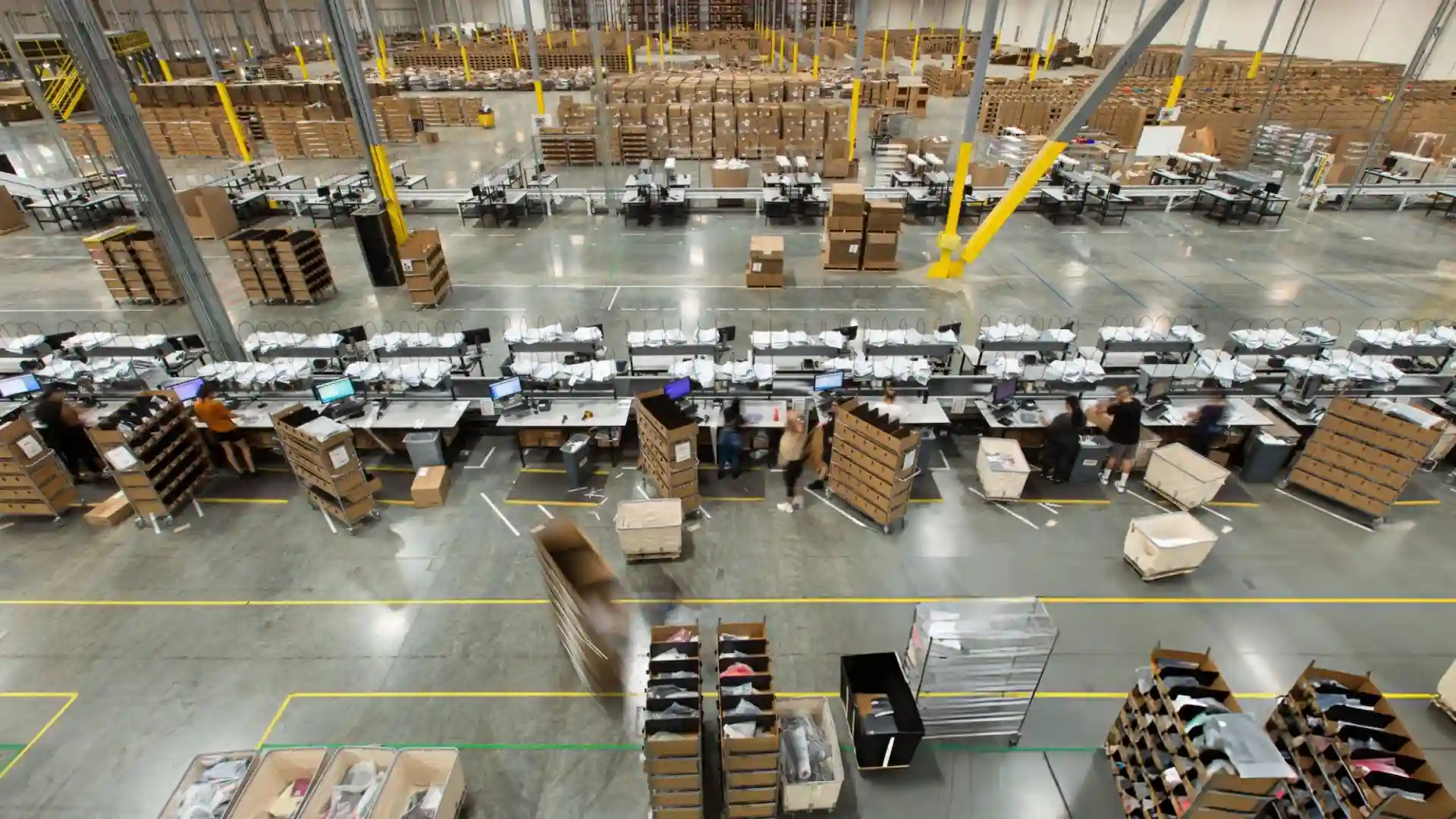B2B Ecommerce vs B2C: Key Differences and Which Is Right for You

Choosing between B2B and B2C ecommerce models is a critical decision for brands looking to scale, reach new markets, or streamline operations. Both models offer unique advantages, but they require distinct strategies for marketing, fulfillment, customer engagement, and technology. This guide breaks down the core differences between B2B ecommerce and B2C ecommerce to help you determine the best approach for your business. We will also explore how Atomix Logistics supports both models with flexible fulfillment services, scalable 3PL solutions, and advanced ecommerce shipping tools.
What Is B2B Ecommerce?
B2B ecommerce refers to online transactions between businesses. This includes wholesalers, manufacturers, distributors, and professional service providers selling directly to other companies. Transactions are often high in volume and value, and the sales cycle involves multiple decision-makers.
Key characteristics of B2B ecommerce:
- Large order volumes, often recurring or contract-based
- Negotiated pricing structures
- Longer sales cycles with multiple touchpoints
- Emphasis on efficiency, reliability, and ROI
- Complex logistics and inventory management
What Is B2C Ecommerce?
B2C ecommerce involves selling goods or services directly to individual consumers through digital storefronts. It is often more fast-paced and marketing-driven, focusing on user experience, branding, and impulse buying.
Key characteristics of B2C ecommerce:
- Smaller order sizes, often one-off purchases
- Fixed and transparent pricing
- Shorter sales cycles, often emotional or needs-based
- Heavy use of digital marketing and social media
- Requires fast ecommerce shipping and seamless checkout
B2B Ecommerce vs B2C: Core Differences
Understanding how B2B and B2C ecommerce differ is critical for aligning your strategy, platform, and operations. Here is a side-by-side comparison across essential factors.
1. Target Audience
- B2B: Companies, procurement managers, retailers, institutions
- B2C: Individual consumers, often browsing on mobile or social platforms
2. Sales Cycle
- B2B: Weeks to months, requires multiple approvals and negotiations
- B2C: Minutes to days, driven by emotions, promotions, or immediate needs
3. Pricing Structure
- B2B: Custom pricing tiers, bulk discounts, long-term contracts
- B2C: Set prices visible to all users, with occasional sales or coupon codes
4. Marketing Approach
- B2B: Account-based marketing, whitepapers, LinkedIn campaigns, direct outreach
- B2C: Paid ads, influencer marketing, SEO, email promotions, social media content
5. Payment Methods
- B2B: Purchase orders, ACH transfers, net terms, invoicing
- B2C: Credit cards, PayPal, Apple Pay, BNPL (Buy Now Pay Later)
6. Customer Expectations
- B2B: Efficiency, scalability, long-term relationships, service level agreements
- B2C: Fast delivery, easy returns, responsive customer service, brand alignment
Choosing Between B2B and B2C Ecommerce
Deciding which model is best depends on your audience, product type, and operational capabilities. Ask yourself the following questions:
- Who is your primary customer—businesses or consumers?
- Are your products typically purchased in bulk or individually?
- Do your sales require account management or are they transactional?
- What kind of ecommerce fulfillment setup do you need?
- How do you handle inventory management and order processing?
If your business caters to both markets, you might need to adopt a hybrid approach that balances the complexity of B2B workflows with the agility required for B2C transactions.
Operational Challenges in B2B vs B2C Ecommerce
Both models come with their own fulfillment challenges. Meeting customer expectations on speed, accuracy, and communication is critical. This is where logistics partners like Atomix Logistics come into play.
B2B Ecommerce Challenges
- Managing bulk shipments across multiple destinations
- Handling unique order fulfillment requirements for each client
- Integrating with enterprise systems like ERP or order fulfillment software
- Maintaining accurate inventory management across warehouses
B2C Ecommerce Challenges
- Processing thousands of small orders quickly and accurately
- Managing returns and customer service inquiries
- Offering reliable 2-day or next-day ecommerce shipping
- Scaling seasonal demand without breaking fulfillment SLAs
Why Logistics Matters in Your Ecommerce Model
Whether you operate a B2B store, a DTC brand, or both, logistics and 3PL fulfillment play a critical role in customer satisfaction and operational efficiency. Choosing the right warehouse for ecommerce brand scalability directly impacts your delivery times, order accuracy, and shipping costs.
Key services offered by a strong 3PL provider like Atomix Logistics:
- Real-time inventory management across multiple locations
- Integration with your ecommerce platform and order fulfillment software
- Scalable warehouse solutions to support business growth
- Optimized 3PL shipping routes for faster, more affordable deliveries
- Tailored ecommerce fulfillment strategies for B2B and B2C needs
How Atomix Logistics Supports Both B2B and B2C Ecommerce
Atomix Logistics is a trusted 3PL partner that understands the operational demands of both B2B and B2C ecommerce models. Whether you ship high-volume B2B orders to retail partners or thousands of small B2C parcels to homes, Atomix ensures efficient execution every step of the way.
For B2B Brands
Atomix provides fulfillment services tailored for complex B2B operations. These include:
- Bulk order processing with kitting, labeling, and palletization
- Compliance with vendor routing guides
- Custom packaging for wholesale orders
- Dedicated support for enterprise clients
For B2C Brands
Atomix’s ecommerce fulfillment solution supports fast-moving DTC brands with:
- Same-day or next-day ecommerce shipping
- Easy return processing
- Inventory forecasting tools
- Branded packaging to elevate customer experience
Unified Dashboard and Order Fulfillment Software
Atomix offers a powerful dashboard that provides visibility into all your orders, shipments, and inventory in real time. This central hub integrates with your ecommerce platform, making it easier to track performance, plan inventory, and manage fulfillment.
Technology and Platform Considerations
The ecommerce platform you choose should support your business model and integrate easily with your 3PL provider. Whether you're running Shopify Plus, Magento, or a custom ERP system, Atomix Logistics can plug in and streamline operations.
When evaluating ecommerce platforms for B2B or B2C, look at:
- API compatibility for seamless data flow
- Custom pricing and checkout workflows (for B2B)
- Mobile responsiveness and UX (for B2C)
- Support for multi-warehouse inventory management
Which Ecommerce Model Delivers Higher ROI?
There’s no one-size-fits-all answer, but each model presents its own opportunities for profitability:
- B2B often delivers higher order values and longer customer lifecycles, but it demands deeper infrastructure and sales support.
- B2C allows faster scaling, lower barriers to entry, and brand storytelling, though margins can be tighter with rising acquisition costs.
Many businesses evolve from one model to the other or adopt both simultaneously. If that’s your path, partnering with a fulfillment provider like Atomix Logistics that supports hybrid operations becomes critical to avoid fragmentation.
Final Thoughts: Choosing the Right Path for Your Brand
Understanding the key differences between B2B and B2C ecommerce helps align your go-to-market strategy, technology stack, and fulfillment workflows. Whether your focus is high-volume B2B distribution or fast-moving B2C retail, your success depends on operational reliability and scalable support.
Atomix Logistics helps brands of all sizes manage 3PL fulfillment, ecommerce shipping, and inventory management from a single platform. With advanced order fulfillment software, real-time tracking, and a nationwide network of warehouses, Atomix is built to support the demands of modern ecommerce, B2B or B2C.
If you're weighing B2B ecommerce vs B2C and trying to map the next phase of your growth, Atomix Logistics is ready to streamline your fulfillment and empower your strategy.
FAQ: B2B Ecommerce vs B2C Ecommerce
What is the difference between B2B and B2C ecommerce?
B2B ecommerce refers to transactions between businesses, such as wholesalers selling to retailers, while B2C ecommerce involves selling directly to individual consumers. B2B usually includes bulk orders, negotiated pricing, and longer sales cycles. B2C is more transactional, with fixed pricing and faster purchasing decisions.
Which ecommerce model is better for my business: B2B or B2C?
The best ecommerce model depends on your target customer, product type, and sales process. B2B works well for companies selling in bulk to other businesses, requiring custom pricing and account management. B2C is ideal for brands selling directly to consumers with a focus on fast ecommerce shipping and user-friendly online shopping experiences.
What are the main challenges in B2B vs B2C ecommerce fulfillment?
B2B ecommerce fulfillment often involves managing bulk shipments, custom order handling, and integration with enterprise systems. B2C fulfillment focuses on speed, accuracy, and return management. Atomix Logistics offers 3PL fulfillment solutions that handle the unique demands of both B2B and B2C operations.
How does a 3PL provider like Atomix Logistics support B2B and B2C brands?
Atomix Logistics offers fulfillment services including real-time inventory management, ecommerce shipping, and scalable warehouse solutions for ecommerce brands. Whether you manage B2B wholesale accounts or direct-to-consumer orders, Atomix provides tailored 3PL shipping and order fulfillment software to optimize operations.
Can I use one ecommerce platform for both B2B and B2C?
Yes, many ecommerce platforms support hybrid models. With the right integrations and a flexible 3PL partner like Atomix Logistics, you can manage B2B and B2C operations from a single system, maintaining separate pricing, workflows, and fulfillment strategies as needed.

.svg)
.svg)
.svg)




